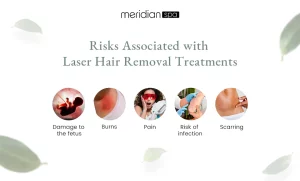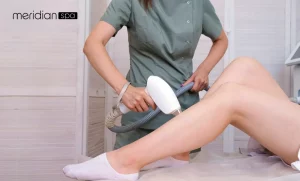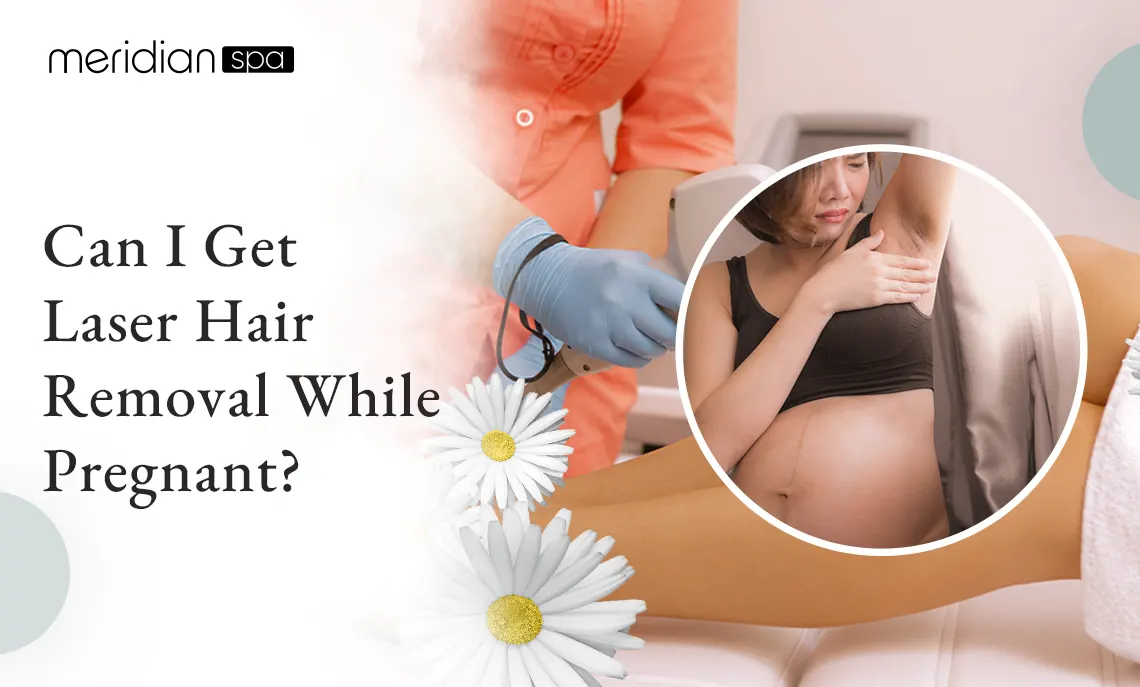Laser hair removal is a prevalent cosmetic practice that utilizes laser technology to remove unwanted hair from the body. It is a safe and effective way to get rid of unwanted hair, and women often use it to remove hair from the face, legs, arms, and other body areas.
However, many women are hesitant to undergo laser hair removal while pregnant, as they are concerned about the procedure’s safety. In this article, we will try to explore the question of whether it is harmless to get laser hair removal while pregnant or not.
Can I Have Laser Hair Removal When Pregnant?

There are certain factors to consider when determining whether or not laser hair removal is safe for you during pregnancy. The first thing to care about is the type of laser being used. Experts Consider some lasers, such as diode lasers, safer for use during pregnancy than others.
However, some risk is still associated with using any type of laser during pregnancy. And it is vital to consult with a qualified healthcare professional before undergoing any laser treatment.
Another factor to consider is the stage of pregnancy. Most experts agree that it is generally safer to avoid laser treatments during the first trimester, as this is the time when the fetus is most vulnerable to potential harm.
However, experts may consider laser hair removal safe during the 2nd and 3rd trimesters, as the fetus is more developed and less vulnerable to potential harm. Again, it is important to consult a qualified healthcare professional before undergoing any laser treatment during pregnancy.
Potential Risks Associated with Laser Hair Removal Treatments

The possible risks linked with laser hair removal during pregnancy include the following:
1. Damage to the fetus
While the risk of fetal damage from laser hair removal is considered low, it is still possible. The laser energy used during the procedure can potentially reach the fetus, and this can cause harm to the developing baby.
2. Burns
Laser hair removal can cause burns to the skin, and this is especially true if the skin is sensitive or damaged. Pregnant women may be more prone to skin irritation and burns due to the hormone changes that occur during pregnancy.
3. Pain
Laser hair removal can be painful, especially if the procedure is not done properly. Pregnant women may be more sensitive to pain owing to the hormonal changes that occur during pregnancy, and this can make the procedure more uncomfortable.
4. Risk of infection
This hair removal technique also has the risk of infections owing to the hormonal changes that arise during pregnancy, and this can make the procedure riskier.
5. Scarring
The inappropriate use of laser hair removal methods can lead to scarring. Pregnant women may be more prone to scarring due to the hormone changes that occur during pregnancy, making the procedure riskier.
If you want to understand treatment pricing after pregnancy, see the average laser hair removal treatment cost guide.
Alternative Options for Hair Removal During Pregnancy

If you are pregnant and are considering hair removal, there are several alternative options that may be safer than laser hair removal. These options include:
1. Shaving
Shaving is a quick and easy way to remove unwanted hair. However, it is important to use a sharp razor to avoid nicks and cuts and to moisturize the skin after shaving to prevent irritation.
2. Waxing
Waxing is the other prominent hair removal method, and it is generally considered safe during pregnancy. However, it is important to choose a reputable salon and tell the technician that you are pregnant to ensure the procedure.
3. Depilatory creams
Depilatory creams are a chemical-based hair removal method that dissolves the hair shaft. They are generally considered safe during pregnancy.
Conclusion
Laser hair removal is a harmless and effective method of removing unwanted hair, but it is important to ponder the potential risks associated with the procedure during pregnancy. While laser hair removal can be safe during the 2nd and 3rd trimesters, it is generally safer to avoid the procedure during the first trimester.
For a complete overview of treatment planning and pricing, read about full body laser hair removal cost.
As pregnant women considering laser hair removal, you should consult a qualified healthcare professional before the procedure. Alternative options for hair removal during pregnancy include shaving, waxing, and using depilatory creams or natural remedies.
It is important to choose a reputable salon, follow the instructions on the product label when using hair removal products, and consult with a competent healthcare professional before undergoing any long-term hair removal treatment during pregnancy.
Frequently Asked Questions
1) Can I Get Waxing or Other Hair Removal Treatments During Pregnancy?
It is generally considered safe to get waxing or other hair removal treatments during pregnancy. However, choosing a reputable salon and telling the technician that you are pregnant is important to ensure safe treatment.
2) Are Any Natural or Home Remedies for Hair Removal Safe During Pregnancy?
Several natural or home remedies may be effective for hair removal during pregnancy. Some options include using sugar and lemon juice to create a homemade wax or using a paste made from chickpea flour and water to remove unwanted hair.
It is important to test any natural or home remedy on a small patch of skin before using it over a larger area, as some ingredients may cause irritation or allergic reactions.
3) Is It Harmless to Use Hair Removal Creams During Pregnancy?
It is generally considered safe to use hair removal creams during pregnancy. However, choosing a product formulated for sensitive skin is essential, as pregnant women may be more prone to irritation or allergic reactions.
It is also important to follow the instructions on the product label and to avoid leaving the cream on for longer than the recommended time, as this can increase the risk of irritation or burns.
4) Are There Any Long-Term Hair Removal Options That Are Safe During Pregnancy?
There are several long-term hair removal options that may be safe during pregnancy. These include electrolysis, which uses a small electrical current to destroy the hair follicle, and threading, which removes hair by twisting a thread around it and pulling it out.
It is vital to consult with a qualified healthcare professional before undergoing any long-term hair removal treatment during pregnancy.
